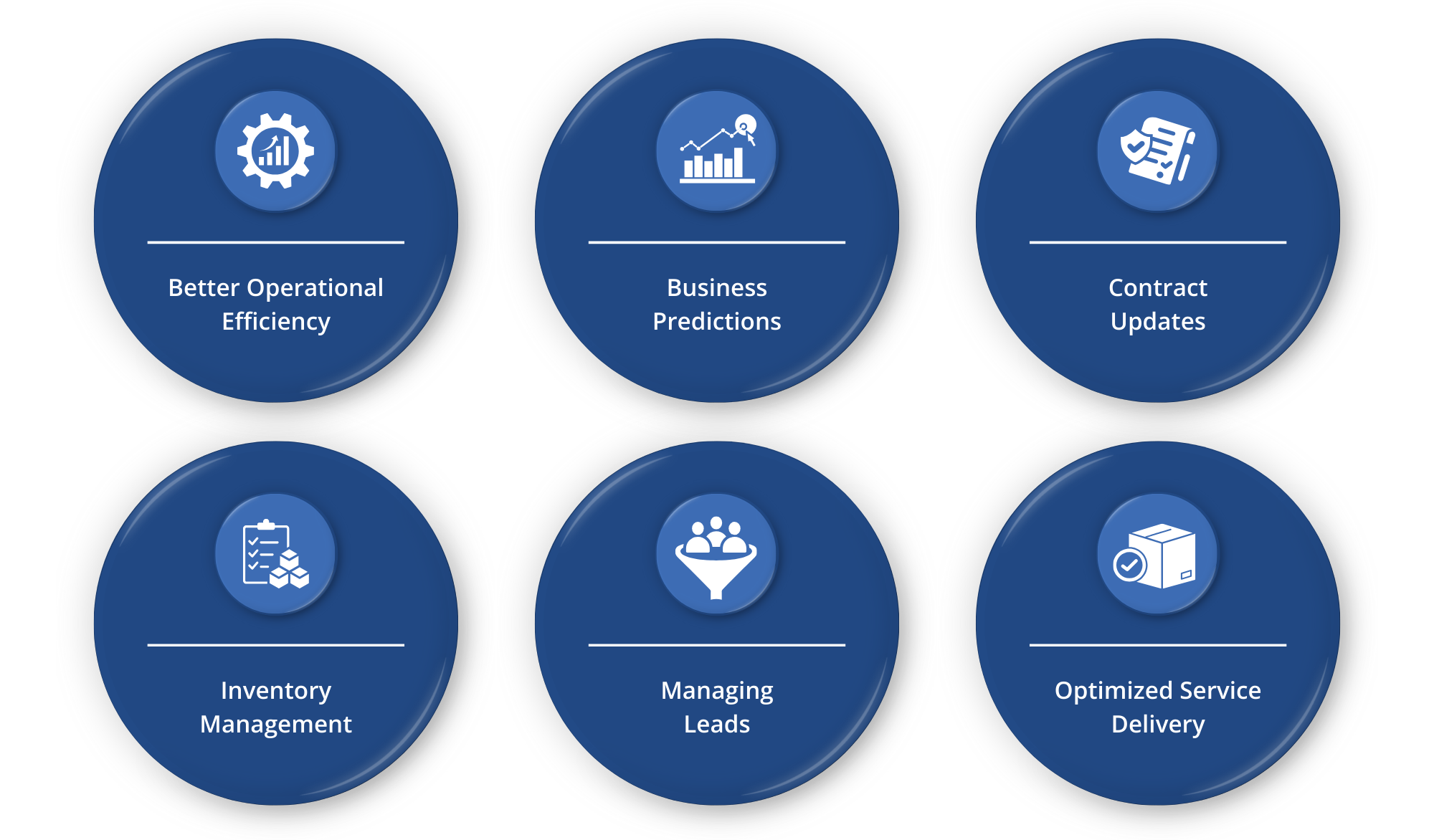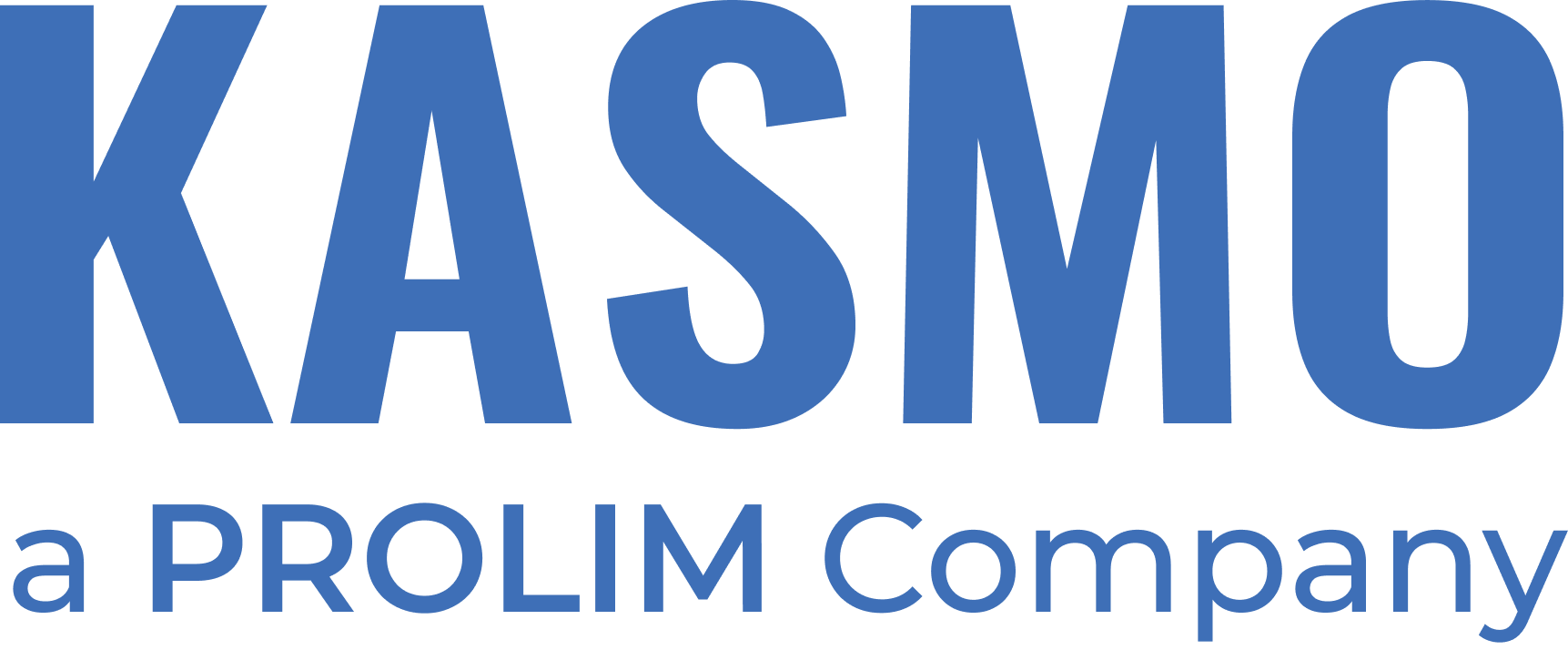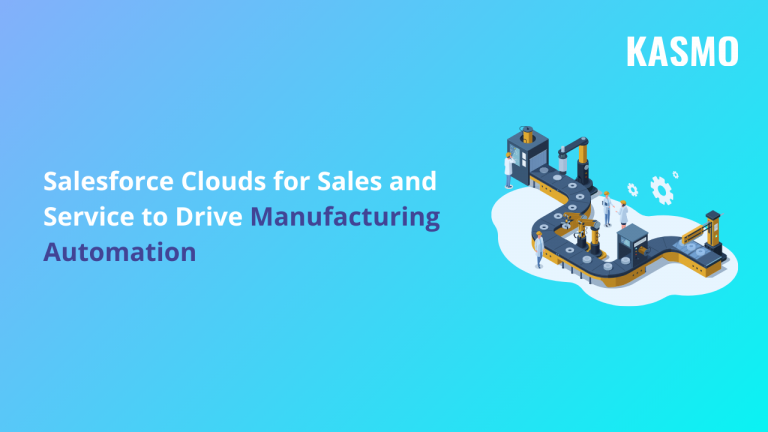Automation is everywhere. We have read and heard of robots being used in multiple sectors, from agriculture, automotive, healthcare, manufacturing, retail, etc. They are primarily used to speed up production, ensure safety, and handle routine tasks. Automated solutions are built using multiple technologies like robotic process automation (RPA), machine learning (ML), natural language processing (NLP), artificial intelligence (AI), and intelligent automation (IA).
Specifically, automation has been transforming the manufacturing sector for decades. Manufacturing automation is the use of the right technologies to efficiently perform tasks, with minimal intervention of human resources. According to a study by McKinsey, it was found that 87 percent of the hours spent on activities performed by workers in production occupations can be automated. This shows the vast opportunity for automation, enabling companies to overcome challenges and increase production.
Integrating robots and AI agents with your business helps manufacturers to better understand changing customer behavior and requirements, manage the supply chain, and improve customer satisfaction. Now, a question arises about which solution is best to adopt. With Salesforce Manufacturing Cloud, the manufacturing automation processes become easier, as it helps to collaborate with sales, customers, and operations.
This blog explores in detail manufacturing automation, the need for it, and the effective role of Salesforce Manufacturing Cloud solutions in adopting automation capabilities and streamlining processes.
Need for Automation in the Manufacturing Industry
The manufacturing industry has become more inclined towards automation processes with the rise in challenges and changing customer demands. Manufacturers can adopt multiple technologies to overcome challenges and outperform. Some of the common challenges faced by manufacturers are given below: 
Higher Productivity and Efficiency
The major need for automation solutions is their ability to increase productivity with more efficiency. It increases production by eliminating errors, reducing time on mundane tasks, more throughput, completing complex tasks, and managing operations.
Cost Competitiveness
Customers have access to different manufacturers and suppliers due to advancements in technology and globalization. This makes it easier for them to compare and evaluate pricing and quality factors, thus making it challenging for manufacturers to maintain competitive prices and drive profit.
Quality Production
In the process of cost reduction, manufacturers cannot compromise on production quality. The use of automated tools ensures precision and higher quality control at a lower cost. Thus, it adheres to quality standards and meets customer expectations.
Longer Sales Cycles
Strategic automation helps to shorten longer sales cycle. It automates repetitive tasks like data entry, follow-ups, emails, etc. This frees up time for sales teams to be more focused on consistent communication with potential prospects and generate higher revenue.
Supply Chain Disruptions
One of the major challenges manufacturers face is supply chain disruption; it can be significantly mitigated with automation. It enhances visibility, streamlines processes, and provides faster response time. Automating inventory management and order fulfillment leads to timely delivery and customer satisfaction.
Data-driven Insights
Automation tools help in collecting and analyzing data about customer needs and product demand. Also, it helps to gain insights with higher accuracy, enabling manufacturers to make data-driven decisions. Which, on the other hand, would be time-consuming when done manually.
How Does Salesforce Help in Manufacturing Automation?
Salesforce, being the world’s largest CRM platform, offers multiple services for several industries. Specifically, in the manufacturing sector, it helps to streamline operations, manage customer relationships, enhance marketing, optimize the supply chain, and assist in the sales lifecycle. Here, we understand the effective Salesforce solutions designed to help with manufacturing automation.
What is Salesforce Manufacturing Cloud?
Salesforce Manufacturing Cloud is a management and cloud-based solution, built exclusively for manufacturers, that helps to manage their entire book of business and companies to overcome issues in manufacturing. It helps to create greater collaboration and maintain transparency between sales, operations, and services.
The feature was introduced in 2019; this solution positively impacts visibility and secures the entire operation. Companies can use the Manufacturing Cloud in tandem with their existing Enterprise Resource Planning (ERP) systems, MuleSoft Accelerator, and Order Management Systems (OMS). It also includes robust features, tools, apps, workflows, and automation processes designed to drive the growth of manufacturing companies.
Key Benefits of Adopting Salesforce Manufacturing Cloud
Adopting Salesforce Manufacturing Cloud benefits companies with tailored solutions that address several challenges. It results in measurable returns by transforming operations, sales, and service. Here are the key benefits-

Better Operational Efficiency
Manufacturing Cloud is beneficial to automate your operational processes. It automates repetitive work and removes manual handoffs, while having the agreement, price approvals, service triggers, and operating on Flow, without code. This provides more time for your teams to work on complex tasks and promotes better departmental collaboration with higher transparency.
Business Predictions
Business requires accurate data and predictions to develop future strategies. This can be made easier using account-based forecasting, as it provides insights into top-performing products and market trends. This helps businesses with better resource allocation for the booming products, forecast market trends, and avoid overstocking or understocking.
Contract Updates
The manufacturing cloud allows a frictionless update process, where contract information can be updated on time when necessary. This solution with automation allows the agreement to update from the same source, while controlling version and accessibility to all parties. Thus, it leads to smooth agreement finalization, gains real-time feedback, and provides an easy process.
Inventory Management
Businesses can keep track of product demand and manage stocks efficiently. Production line automation helps in eliminating less-selling items to save costs and reduce wastage. It also helps to avoid supply chain disruption, which results in higher ROI and meeting customer demands.
Managing Leads
Having a digitalized framework makes it easy to effectively manage leads with high potential and understand their requirements. Salesforce Cloud automates tasks like lead tracking, reducing manual effort and errors. Salespeople get notified of priority leads and make actional plans to increase conversion rates. It also provides customer insights, which can be used in formulating marketing strategies.
Optimized Service Delivery
Salesforce Manufacturing Cloud equips your business with essential features required to optimize services and elevate customer experience. Have a track on your customer queries, approve warranty claims, resolve issues, etc., at a single platform. Hence, businesses can maintain records on the entire customer journey and conversions.
Effective Salesforce Solutions to Adopt Automation in Manufacturing
Businesses can use Manufacturing Cloud in 3 different ways: for sales, for services, or both services. Let’s discover each one of them:
Manufacturing Cloud for Sales
Salesforce Manufacturing Cloud for Sales is a functionality-based CRM designed for manufacturers and enhances their entire sales process. It consists of industry-specific functionality and showcases all the details within the sales lifecycle, from lead generation and lead nurturing to follow-ups and contract management. Provides a detailed view of your sales funnel, business opportunities, long-term sales programs, and customer requirements.
Manufacturing Cloud for Sales provides improved predictability for your business, allows for transparency, and collaboration between sales and operations teams. It provides insights into sales performance and customer behavior. Thus, helping manufacturers to get accurate forecasts and create efficient sales strategies.
Manufacturing Cloud for Services
Manufacturing Cloud for Service helps Organizations manage customer service more intelligently. Businesses can easily understand and resolve customer problems, glean intelligence from surveys, automate processes, manage warranties, anticipate service revenue, and product demand.
Manufacturers get access to the customer service dashboard, which provides an overall view of your customers. This helps representatives to assist better and offer a more personalized customer experience. With a warranty management process, businesses can ensure smooth claims with strict service standards, leading to happy customers. Gaining customer feedback via a survey provides a better understanding of customers’ thoughts and key areas for improvement.
Agentforce for Manufacturing Cloud
Manufacturing automation can be taken to the next level by integrating an AI agent in your business. It is an agentic AI solution including pre-built AI agents for your teams, helping to improve productivity, strengthen customer relationships, and gain operational efficiency. Agentforce helps to transform customer operations, as well as services, by connecting all your customer data, products, and distributors on a single platform.
According to Salesforce, manufacturers have achieved 30% ROI with the effective implementation of Manufacturing Cloud. With the AI-integrated model, Agentforce helps businesses enhance efficiency, gain insights into day-to-day operations, increase revenue, and achieve higher productivity.
Conclusion
Automation in manufacturing has become more essential in recent years, as it helps to overcome multiple challenges from production to supply chain optimization. However, with the changing customer behavior and market trends, these challenges also evolve, so adopting platforms like Salesforce Manufacturing Cloud helps to build a collaborative workflow between sales, operations, and services.
Manufacturers can gain the maximum potential of the Manufacturing Cloud platform and automate processes with Kasmo, a global Salesforce summit partner. At Kasmo, we provide tailored AI, automation, and data-driven solutions for manufacturing businesses to elevate sales and service.




